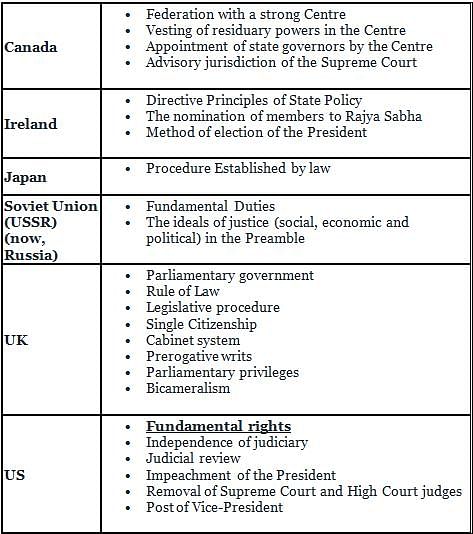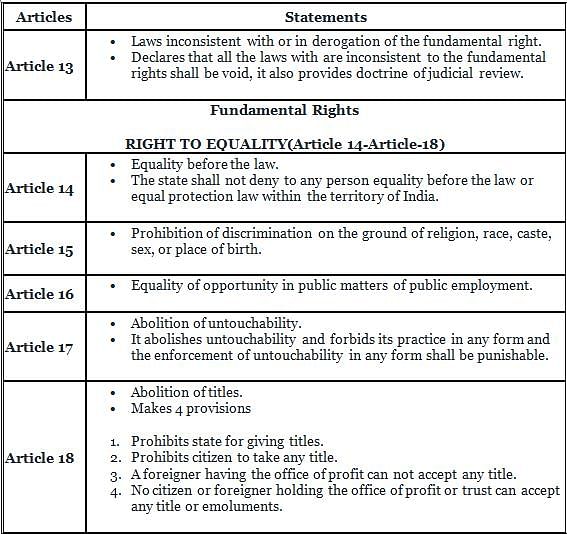Laxmikanth Test : Fundamental Rights- 3 - DSSSB TGT/PGT/PRT MCQ
10 Questions MCQ Test General Awareness & Knowledge - Laxmikanth Test : Fundamental Rights- 3
Fundamental rights in the Indian constitution have been taken from the
Who among the following headed the nine-judge constitutional bench that declared the right to privacy as a fundamental right?
| 1 Crore+ students have signed up on EduRev. Have you? Download the App |
Which part of the Indian Constitution contains the Fundamental Rights of the citizens?
Which Article of the Indian Constitution abolished the practice of untouchability?
The scope of the Article 21 of the Constitution was expanded to include Right of Education, because of the decision of Supreme Court in the case
Which of the following Article state the "Abolition of Titles"?
Right to Privacy is protected as an intrinsic part of Right to Life and Personal Liberty. Which of the following in the Constitution of India correctly and appropriately imply the above statement?
Access to the internet is the Fundamental Right under which Article of the Indian constitution?
Which of the following is/are incorrectly matched?
1. Article 14: Abolition of Untouchability
2. Article 15: Right against exploitation
3. Article 16: Right to equal opportunity in employment
4. Article 17: Abolition of Titles
Article 21A of the Constitution of India provides Right to _______.
|
266 videos|355 docs|31 tests
|
|
266 videos|355 docs|31 tests
|



















